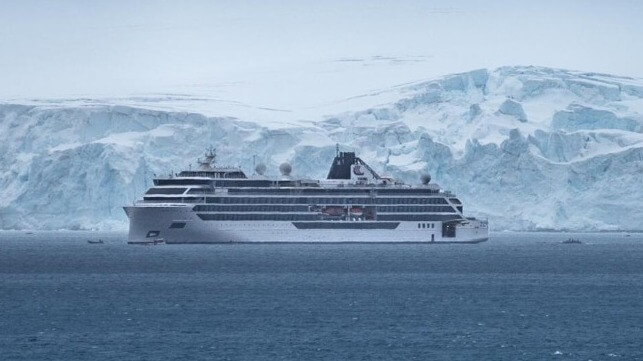US Coast Guard Heads to Ushuaia to Investigate Fatal Cruise Accidents

The United States Coast Guard and the National Transportation Safety Board have joined an inquiry into a series of fatal accidents involving Antarctic cruise operations. The two agencies' marine safety investigators rarely operate so far from home, but after four serious incidents involving Americans aboard Antarctic cruise ships or cruise ship excursion boats, they have deployed to Argentina to ask questions and gather information.
The four accidents in question all occurred in the two-week period from November 15 through December 1. During that short time, four American citizens were killed and five were injured in separate incidents involving cruise vessel operations in the Antarctic - one of the harshest and most remote destinations in the world.
On November 15, two U.S. passengers from the World Explorer were killed when a zodiac capsized near Elephant Island. The operator, Quark Expeditions, said that the conditions on scene were calm, and it believes that a breaking wave caused the boat to capsize. Four other passengers and two crewmembers survived. Portugal, the World Explorer's flag state, is leading an investigation into the cause of the casualty.
On November 28, a U.S. passenger from the cruise ship Viking Polaris was injured when an inflatable boat from the ship suffered a keel-tube failure off Damoy Point. "It was a real loud, it was a boom, and I flew up in the air, and the passenger across from me flew up in the air. She came down and hit hard," passenger Pam Trusdale told ABC News. The victim's injury was serious enough that Viking Polaris headed back to Ushuaia early in order to get her to a higher level of medical care.
On November 29, as the Viking Polaris was transiting back to Ushuaia in the notoriously rough Drake Passage, the ship was struck by a heavy wave. The wave stove in several windows on the port side, killing one U.S. citizen and injuring four others. Argentine port state authorities have reportedly closed their inquiry into the casualty, but Norway (the flag state for Viking Polaris) will be leading a separate investigation into both incidents involving the vessel.
In a fourth accident, a U.S. citizen aboard the Dutch-flagged expedition cruise ship Plancius died from "an injury sustained aboard the vessel." The U.S. Coast Guard will be conducting the investigation along with the flag state and the government of the Falkland Islands. The incident does not appear to have been previously reported to the public.
Since Americans were impacted by all of these casualties, U.S. authorities are joining the investigations as a "substantially interested state."
“Our deepest sympathies go out to the families of those impacted by these tragedies,” said Capt. Gretchen Bailey, Coast Guard Activities Europe commanding officer. “We are proud to work alongside the NTSB and our international partners to investigate these incidents and make meaningful safety improvements for worldwide passenger vessel operations, especially in unique high-risk environments like the Antarctic."

that matters most
Get the latest maritime news delivered to your inbox daily.
The U.S. Coast Guard and the NTSB have sent teams to Ushuaia, Argentina, the jumping-off point for Antarctic cruise operations, where they will participate in the inquiries and gather information with the goal of improving operational safety.
The freezing water, rough weather and sheer remoteness of Antarctica make it one of the most difficult operating environments on the planet. Maritime history is filled with legends and cautionary tales from voyages in the Drake Passage and the Southern Ocean. Today, the region is an increasingly popular destination, raising new questions about safety and sustainability as boutique tour operations transition to mass tourism. About 50,000 people visited the continent in 2018-19, and that number is expected to double this year.
